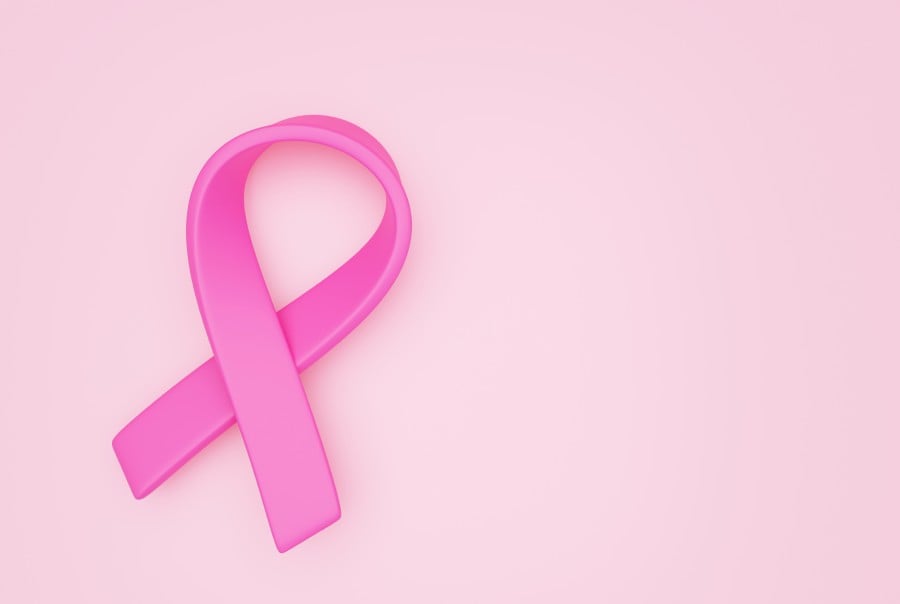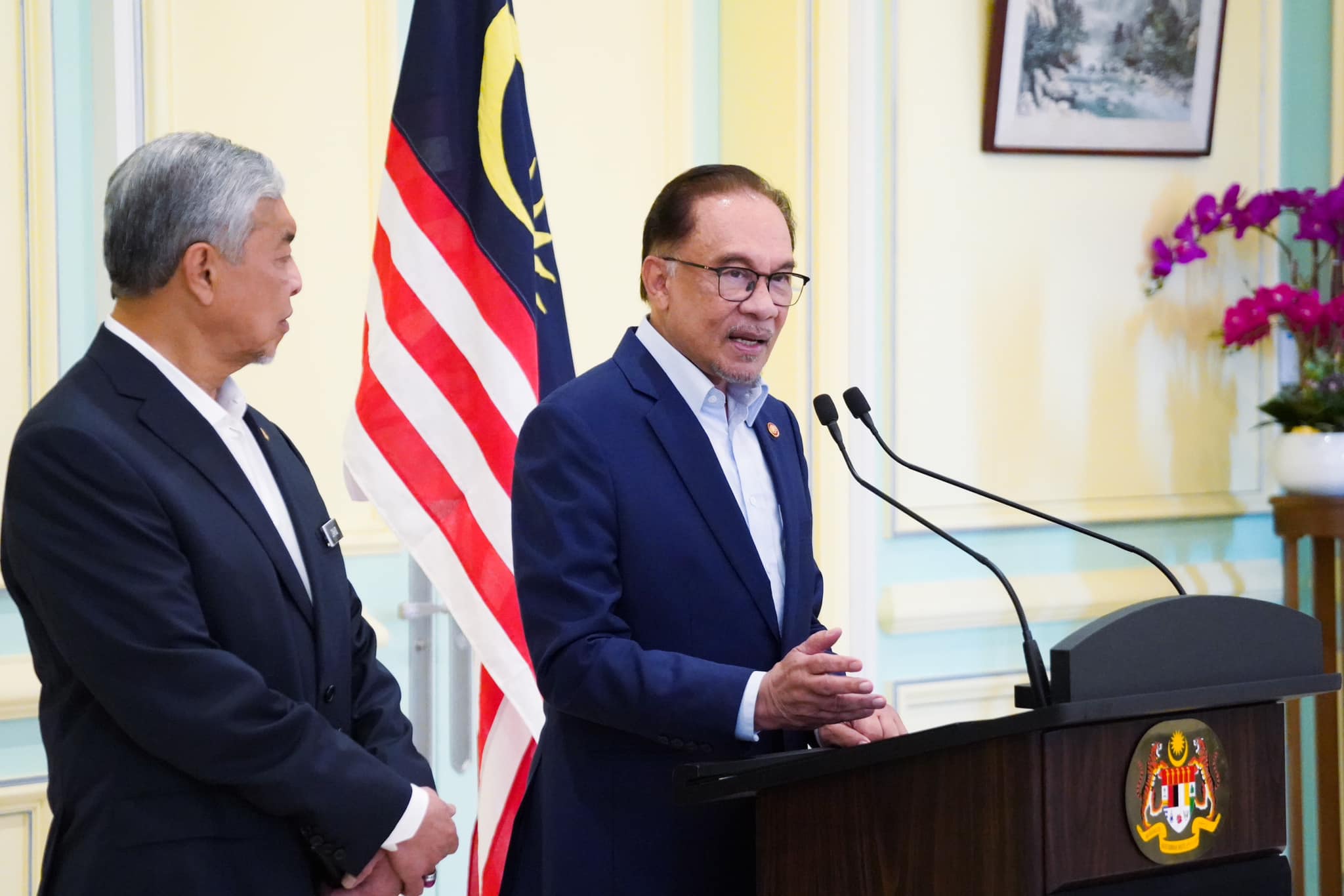
Published by AsiaNewsToday & CodeBlue image by New Straits Times.
Breast cancer is the most prevalent cancer for women with 2.3 million new cases worldwide in 2020 (“Breast cancer”, WHO, March 26, 2021). In Malaysia, 1 in every 19 women are at risk (“Early Detection of Breast Cancer Can Save Lives”, CodeBlue, October 17, 2022).
Breast cancer is a result of rapid mutation of cells in breast tissues. Excessive growth of mutated cells creates a tumour resulting in breast cancer. Numerous factors increase one’s vulnerability to breast cancer such as genetic predispositions, age, physical inactivity, alcohol consumption, smoking, and, exposure to radiation.
The following presents some shortcomings in policies regarding breast cancer treatment along with the policy recommendations.
Psycho-oncology services – group therapy
Psycho-oncology refers to the psychological, social, and behavioural effects cancer has on patients and their caregivers.
For now, psycho-oncology services in Malaysia are limited with only general consultations provided to patients (“National Strategic Plan for Cancer Control Programme 2021-2025/NSPCCP”, Ministry of Health, 2021).
Research shows that both depression and anxiety have a 10%-30% prevalence rate in breast cancer patients. Such emotional distress is associated with higher fatigue and suicidal thoughts, poorer quality of life, and decreased outcome of cancer treatment (see, “Assessment of Depression and Anxiety in Breast Cancer Patients: Prevalence and Associated Factors”, Papathanasiou Tsaras K et al., Asian Pacific Journal of Cancer Prevention, Vol. 19, Issue 6, 2018 and “Perceived Distress and its Association with Depression and Anxiety in Breast Cancer Patients”, Chong Guan Ng et al., PLOS One, Vol. 12, Issue 3, 2017).
Despite the alarming effects of poor mental health in cancer patients, psycho-oncological treatment is often neglected.
While our NSPCCP makes brief reference to the importance of psycho-oncology (p. 22), it fails to include any guidelines regarding the improvement of the services.
Taking into account the shortage of therapists in Malaysia (see “The underprioritising of children’s mental health care”, EMIR Research, November 29, 2022), it may not be possible to provide individual therapy for all breast cancer patients. Instead, it’s recommended that group therapy come into the picture.
Group therapy is a type of therapy where one or two therapists meet with numerous patients at once and everyone takes turn sharing their emotions and experiences. One of the most important advantages of group therapy is the shared experience and avenue to receive support from one another. Furthermore, group therapy is less costly.
Research shows that breast cancer patients who received group therapy showed significant reductions in depression, anxiety, negative mood, and intrusive thoughts (“Effect of Group Therapy on Psychological Symptoms and Quality of Life in Turkish Patients with Breast Cancer”, Yavuzsen T et al., Asian Pacific Journal of Cancer Prevention, Vol. 13, Issue 11, 2012).
Caregivers of cancer patients also experience significant psychological distress.
Caregivers oversee numerous tasks such as keeping track of the patient’s symptoms, treatment and medication, transportation, household responsibilities, being emotionally present for the patient’s distress as well as having to deal with disruptions in their social life while also meeting financial commitments or obligations.
A study on 130 caregivers of breast cancer patients in Malaysia found that 64 (49.2%) caregivers suffered from psychological distress and 15 (11.5%) had an anxiety disorder. Mental and emotional distress in caregivers can increase mortality risk (likelihood of death) by 63% compared to non-caregivers (“Anxiety Disorders in Family Caregivers of Breast Cancer Patients Receiving Oncologic Treatment in Malaysia”, Siti Hazrah Selamat Din et al., Asian Pacific Journal of Cancer Prevention, Vol. 18, Issue 2, 2017).
Providing caregivers with emotional support through therapy improves their ability to provide cancer care, reduces distress, and has been associated with better quality of life for patients and treatment outcome. However, little importance is given to caregivers’ need for psychological support.
Special care must be taken in providing psycho-oncology services to breast cancer patients and caregivers from lower socioeconomic backgrounds. Research shows that lower financial support is a risk factor in suffering from anxiety and depression (“Anxiety and Depression among Breast Cancer Patients in an Urban Setting in Malaysia”, Mohd Rohaizat Hassan et al., Asian Pacific Journal of Cancer Prevention, Vol. 16, Issue 9, 2015).
EMIR Research recommends for the introduction of group therapy (psycho-oncological) services for patients diagnosed with breast cancer in all public and private hospitals together with their caregivers;
Insurance coverage – some shortcomings
According to Prof Dr Nirmala Bhoo-Pathy, a cancer epidemiologist at UM, breast cancer treatment can cost RM65,000 annually, and go up to as high as RM395,000 overall (“The Real Cost of Cancer In Malaysia”, Alifah Zainuddin, CodeBlue, June 3, 2022).
At the same time, nearly 45% of cancer patients in Malaysia experience financial hardships (over 30% of household income, on average or in general, is dedicated to medical expenditure) one-year post-diagnosis (“Survey shows nearly half Malaysian cancer patients broke a year after diagnosed”, MalayMail, September 11, 2015).
Although public hospitals offer highly subsidised cancer treatment to all Malaysians, waiting period for tests and treatments are very long due to limited personnel and resources, and advanced treatment is scarcely available (“Understanding the Financial Needs Following Diagnosis of Breast Cancer in a Setting with Universal Health Coverage”, Yek‐Ching Kong et al., Oncologist, Vol. 25, Issue 6, 2020).
Under the MySalam protection scheme, free insurance coverage is provided for 45 critical illnesses. Should your illness be covered in the 45 critical illnesses, you’re entitled to a RM8,000 payout and a daily RM50 hospitalisation allowance for 14 days every year.
While these are crucial benefits, the criteria for cancer under the 45 critical illnesses list is inadequate. MySalam only provides coverage for cancer “of specified severity and [doesn’t] cover very early cancer”.
The problem with this categorisation is two-fold.
Firstly, the term “very early cancer” is vague and confusing.
Dr M. Murallitharan of National Cancer Society of Malaysia has highlighted that different cancers do progress differently and with different severity.
For instance, a Stage 3 colorectal cancer may be less critical than a Stage 2 aggressive breast cancer (“Insurance Companies Always Deny Claims, Say MySalam Critics”, CodeBlue, April 25, 2019). The simplistic, “catch-all” terminology of “very early cancer”, therefore, introduces inaccurate (on-the-ground) classifications for patients under the scheme, increasing the likelihood of them being denied insurance coverage.
Secondly, by not covering early cancer treatment under MySalam, it discourages individuals from seeking treatment. This starkly contradicts extensive in-depth research showing that early cancer treatment improves treatment outcomes, increases survival rates and is less expensive.
A study in the US of 8360 breast cancer patients found that the later a treatment was, the more costly it became.
One-year treatment for patients at very early cancer costs USD71,909 whereas treatment for patients at advanced stages costs remarkably more at USD162,086, a 125% increase. Similar patterns have been observed in France, Belgium, UK, and Canada (“Comparison of Treatment Costs for Breast Cancer, by Tumor Stage and Type of Service”, Helen Blumen et al., American Health & Drug Benefits, Vol. 9, Issue 1, 2016).
Additionally, the later breast cancer is treated, the lower is the survival rate.
In the early stages, when cancer has not spread outside the breasts, the 5-year survival rate (patient will live for at least 5-years post-diagnosis) is at 99% which decreases to 26%-29% in later stages, meaning cancer has spread to other organs such as lungs (“Survival Rates for Breast Cancer”, American Cancer Society).
Hence, it doesn’t make sense for MySalam not cover for “very early cancer”. This will only lead to increased costs down the road and decreased survival rate for breast cancer patients.
Breast reconstruction surgery – a necessity
Another area of policy concern is the categorisation of breast reconstruction surgery as “cosmetic” (“Understanding the Financial Needs Following Diagnosis of Breast Cancer in a Setting with Universal Health Coverage”, Yek‐Ching Kong et al., Oncologist, Vol. 25, Issue 6, 2020) instead of as a medical/health necessity under insurance schemes.
Many women diagnosed with breast cancer undergo mastectomy which is a surgery wherein one or both breasts are partially or entirely removed.
While mastectomies are essential for controlling the spread of breast cancer, it severely negatively impacts the psychological health of patients (“Impact of Breast Cancer Surgery on the Self-Esteem and Sexual Life of Female Patients”, Christos Markopoulos et al., The Journal of International Medical Research, Vol. 37, Issue 1, 2009).
Research show that breast reconstruction surgeries improve body image, self-confidence, overall quality of life and help maintain a sense of normalcy in their lives (“After mastectomy, breast reconstruction may boost body image”, Reuters, January 1, 2016).
Dr Azlina Firzah Abdul Aziz of Pantai Hospital Kuala Lumpur has shared how her breast cancer patients feel depressed upon hearing that they need to undergo breast removal but when told they can get new breasts, they are able to smile, only to get depressed once again when they find out that this surgery is not covered by insurance (“Breast reconstruction, prosthesis a necessity”, The Sun Daily, October 9, 2015).
In the US, for instance, insurance coverage for breast reconstruction is mandated as per the Women’s Health and Cancer Rights Act (1998).
In the final analysis, EMIR Research recommends that:
- MySalam provides a more in-depth description of the term “very early cancer” to allow for greater transparency;
- MySalam remove the provision of “very early cancer” as being exempted from the 45 critical illnesses list – cancer shouldn’t be compartmentalised in this respect and including all stages is critical for the collection of staging data for diagnosis and even prognosis purposes;
- MySalam allows for breast reconstruction surgery to be covered; and not least,
- PekaB40’s completing cancer treatment incentive (CCTI) of RM1000 be extended to MySalam (as part of the alignment of both schemes) in providing therapy. After all, many households from the M40 had fallen into the B40 category these days and are equally recipients of unconditional cash transfers (UCTs), etc.
In conclusion, EMIR Research strongly urges the government to take additional pro-active steps to ensure that breast cancer treatments are less stressful or traumatic for the patients – as part of the wider policy initiatives to do more for cancer patients and cancer treatment in general.
Jason Loh and Juhi Todi are part of the research team at EMIR Research, an independent think tank focused on strategic policy recommendations based on rigorous research

